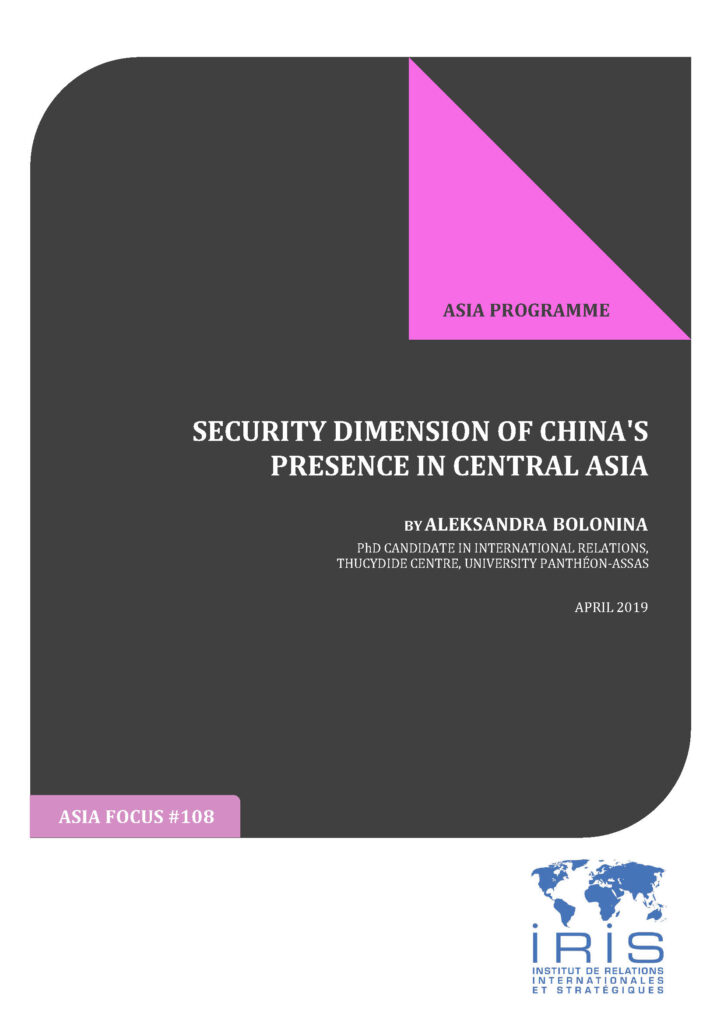Notes / Asia Focus
4 avril 2019
Security Dimension of China’s Presence in Central Asia

In the early 1990s the five Central Asian states stepped up to the international arena as independent actors for the first time since the 19th century. From the moment the Russian empire launched its expansion policy in Central Asia in the 18th century and till the collapse of the Soviet Union, the five regional republics existed within the political space dominated by Russia. Composed of diverse ‘socio-cultural’ minorities, that political space presented a certain kind of a ‘world-empire’ driven by a « heavy administrative, fiscal and bureaucratic apparatus ». The Central Asian states -then Soviet republics – were allowed the role of the imperial periphery. Isolated from foreign powers’ influence, they had been conducting the policy oriented on and controlled by Moscow.
Today, no longer dependent, the five Central Asian states have partially taken control of their economic and political potential that they seek to develop via discovering new external connections and partnerships. They have thus begun to open themselves up to the powerful actors of their immediate neighbourhood, or, to be more precise, it is the dominant actors who have started to explore the region. China, being no exception, has become today an indispensable commercial partner of the five states and at the same time a vital, though not explicit, actor of the regional security agenda…

